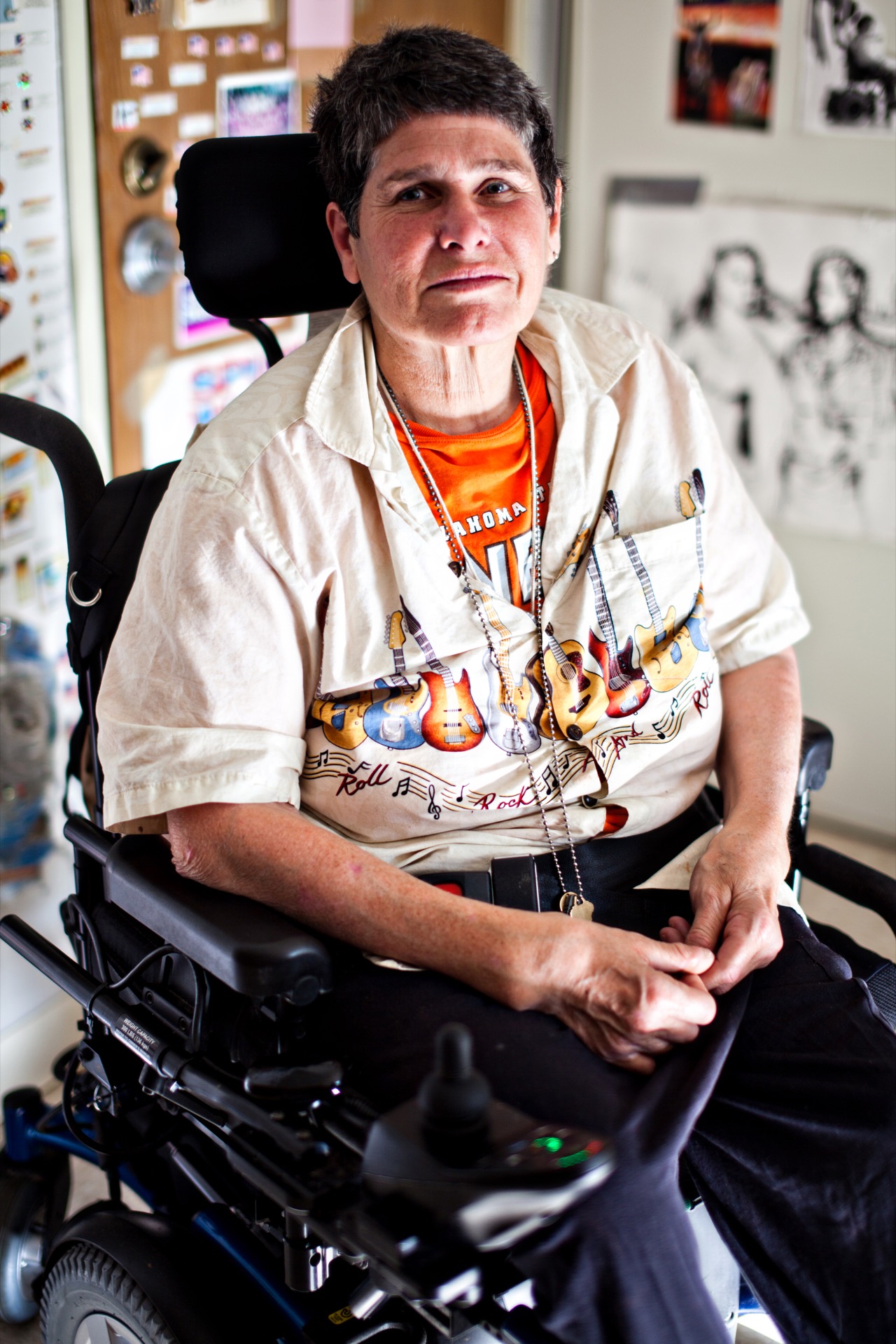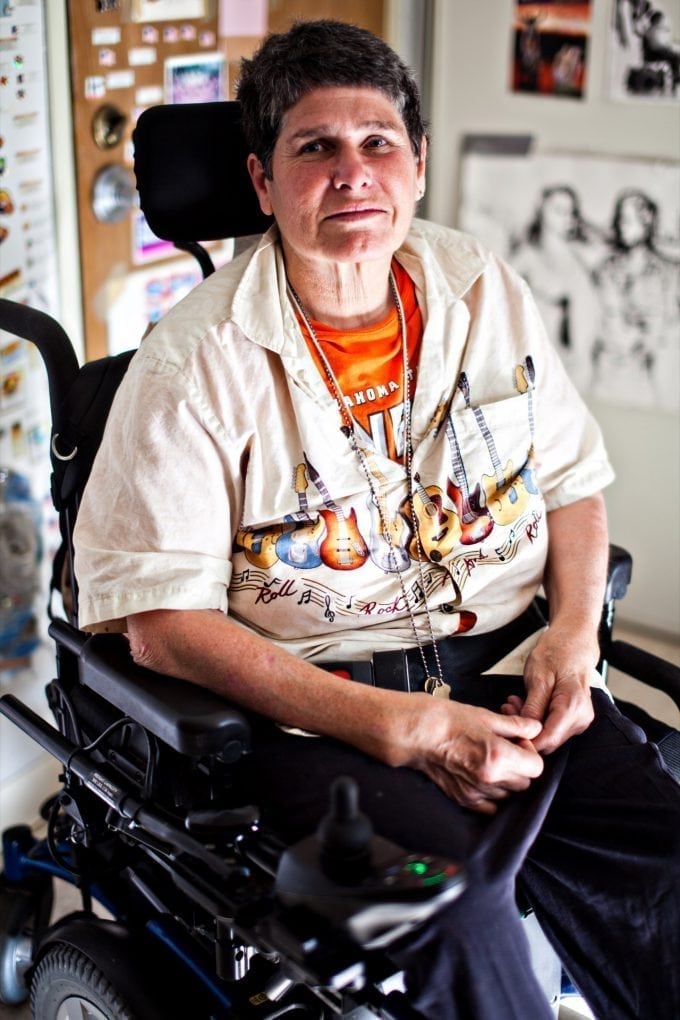
Patty Overland
is a suicide attempt survivor."I survived a suicide attempt."
I met Patty Overland at her home in Berkeley, California. At the age of 19, she became physically disabled as a result of her suicide attempt. She is a LGBTQ and disability rights advocate. She was 59 years old when I interviewed her on April 18, 2013. Here, she talks about being a survivor and the power and unity to be found in sharing our stories.
And, for the first time (thanks to Kickstarter backers), below Patty’s interview, be sure to check out some video I made of her performing a poem she wrote in 1986 called “Super Crip Girl.”
I decided I’d like to tell my story because…
 Besides the initial shock of somebody saying, “How’d you get in that wheelchair?” and I tell them, and they go, “Why did you do that?” People think they can just say that. So I’m supposed to do, like I just did, a brief thing about my adolescence, and then somehow they’re gonna understand it? It’s like, “No, no, it’s a very invasive sort of a question…”
Besides the initial shock of somebody saying, “How’d you get in that wheelchair?” and I tell them, and they go, “Why did you do that?” People think they can just say that. So I’m supposed to do, like I just did, a brief thing about my adolescence, and then somehow they’re gonna understand it? It’s like, “No, no, it’s a very invasive sort of a question…”
I think it’s important for me to tell my story because people survive all kinds of things.
I think it’s important for me to tell my story because people survive all kinds of things. People survive rapes. They survive car accidents that are also violent. In a way, my friends born disabled don’t consider this, but to me, I feel like they are survivors too, being born disabled. ‘Cause they’ve had to go through the whole experience of their life as disabled people, and so they’ve had to put up with all the attitudes about that.
I think it’s even more important now, with the suicide bombings back there in New York and then what I’ve seen of people jumping off the Golden Gate out here on the west coast. What I’ve seen coast to coast, if a person is a survivor, it’s important that people should know that.
What I’ve seen coast to coast, if a person is a survivor, it’s important that people should know that.
And people that know me know that, and maybe they’ll know more from your project. But when I’ve hung out at the White Horse Bar, the local gay bar, I’ve met survivors there that are lesbians. It’s mostly a men’s bar but women started going there. The minute I tell them, they’re like, “Oh, I am too.” And somebody else will say, “Oh, I am too.”


